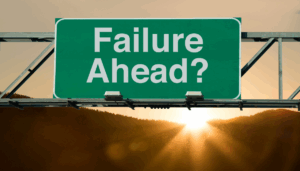In a Harvard Business Review video (A Plan Is Not a Strategy), Roger Martin explains why many strategic plans fail to deliver results. The problem is that leaders often confuse strategy with planning. Planning involves listing tasks, while strategy positions your business to win in the market. This confusion keeps many building service contractor (BSC) owners and leaders busy without making real progress.
Why Planning Isn’t Strategy
Most “strategic plans” are just action lists: hiring more managers, adding services, or creating a training program. While these are helpful steps, they won’t deliver strong results without a clear strategy to connect them.
Strategy, by contrast, is about making specific choices that work together to give your business an advantage. It’s not about doing more things—it’s about doing the right things in a focused, deliberate way.
Why Planning Feels Easier
Planning is more comfortable because it focuses on things you can control, like staffing, buying equipment, or leasing space. These actions have clear costs and deadlines.
Strategy, however, deals with factors you can’t control—like market competition and customer preferences. It’s about making bold decisions to stand out, which feels riskier. But without a solid strategy, even the best plans won’t make your business a market leader.
4 Key Strategy Questions
- Where Will You Compete?
Define your target market: whom you’ll serve and where.
Example: Our market includes Class A office spaces, outpatient medical centers, and distribution facilities in the 10-county Indianapolis Metro area. - How Will You Win?
Explain why customers will choose you over competitors.
Example: We will reduce cleaning-related distractions by delivering consistent, high-quality service, responding quickly to issues, and offering proactive insights. - What Capabilities Will You Need?
Identify the skills and resources required to succeed.
Example: We will hire and develop field leaders and equip them with tools to monitor progress, improve service, and create value. - What Systems Will You Use to Execute?
Develop processes to track performance and adapt as needed.
Example: Our recruiting, onboarding, and training system will be efficient and supported by technology for real-time issue reporting and resolution.
Keep Evolving
Strategy is an ongoing process. Start with a hypothesis about how your choices will work. Monitor results and adjust as needed to refine your approach. By understanding the difference between planning and strategy, you can position your BSC to lead, not just compete. Focus on where you’ll play, how you’ll win, and the right tools and resources to stay ahead.






